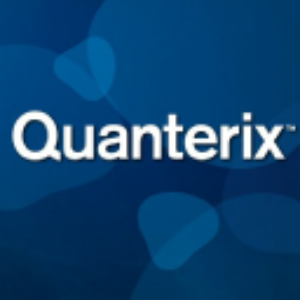Quanterix Announces First Collaborations with Five Health Networks to Aid the Diagnosis and Clinical Management of Individuals with Alzheimer’s Disease
AdventHealth, Mass General Brigham, Mayo Clinic, MUSC, and UPMC will leverage Quanterix technology and assays to streamline care for Alzheimer’s patients
Collectively AdventHealth, Mass General Brigham, Mayo Clinic, South Carolina Alzheimer's Disease Research Center (SC-ADRC) at the Medical University of
Blood-based biomarker testing offers Alzheimer’s patients a non-invasive method and greater access to AD testing overall. Traditional AD diagnosis has relied on combination of symptom presentation, brain imaging, and the detection of CSF biomarkers for AD. This approach is not only burdensome and invasive for patients, but also costly, making them unsuitable for most primary and secondary care settings1. This inaccessibility has left 50
“New resources available to aid in diagnosis and treatment of Alzheimer's disease have contributed to a more optimistic environment for AD patient care,” said Kirk Erickson, PhD, director of translational neuroscience at the AdventHealth Neuroscience Institute. “With simplified, affordable, non-invasive testing methods, physicians can proactively evaluate and monitor patients with memory concerns. The availability of blood-based biomarker testing to the AdventHealth network has the potential to help a wide population concerned about mild cognitive impairment and aid physicians in their diagnosis.”
"As we see how well blood measures of p-Tau 217 perform," said Dr. Brad
“In our pursuit to build the global testing infrastructure for Alzheimer’s disease, Quanterix is pleased to work with several health systems whose combined networks treat millions of patients,” said Masoud Toloue, CEO of Quanterix. “There is a critical need for easily accessible, time- and cost-effective diagnostic tools for Alzheimer’s. By working with these leading hospitals, we are taking an important step just as disease modifying therapies become available to patients suffering from this disease.
Quanterix’s commitment to establishing the industry standard for accuracy continues to position the company as a critical partner for AD testing. Beyond these five health systems, Quanterix is initiating partnerships with reference laboratories and hospitals globally to enable patients with cognitive symptoms consistent with Alzheimer’s disease to be tested.
For more information about Quanterix’s work in neurology, visit: https://www.quanterix.com/therapeutic-areas/neurology/.
About Quanterix
From discovery to diagnostics, Quanterix’s ultrasensitive biomarker detection is fueling breakthroughs only made possible through its unparalleled sensitivity and flexibility. The Company’s Simoa® technology has delivered the gold standard for earlier biomarker detection in blood, serum or plasma, with the ability to quantify proteins that are far lower than the Limit of Quantification (LoQ) of conventional analog methods. Its industry-leading precision instruments, digital immunoassay technology and CLIA-certified Accelerator laboratory have supported research that advances disease understanding and management in neurology, oncology, immunology, cardiology and infectious disease. Quanterix has been a trusted partner of the scientific community for nearly two decades, powering research published in more than 2,700 peer-reviewed journals. Find additional information about the
About Lucent Diagnostics
Committed to transforming the landscape of Alzheimer’s Disease (AD) diagnostic testing, Lucent Diagnostics, a Quanterix brand, is revolutionizing AD patient care by providing accurate, reliable, and actionable diagnostic information to healthcare professionals and patients alike. Lucent Diagnostics harnesses Quanterix’s ultrasensitive Simoa® technology—the groundbreaking biomarker detection technology that delivers the gold standard for earlier biomarker detection in blood, serum or plasma— to power its mission of addressing the critical need for advanced diagnostic tools that can measure biomarkers associated with neurodegenerative diseases. The LucentAD test, powered by Simoa®, is available to healthcare providers as an aid in conjunction with other diagnostic tools, provides clinicians with a simplified process to quickly assess the likelihood of a patient having amyloid pathology consistent with AD, allowing for early or preventative AD treatment. The LucentAD product line currently measures p-Tau 181 and p-Tau 217 in plasma, two of the top performing biomarkers for AD. Find additional information about the
Forward-Looking Statements
This press release contains forward-looking statements within the meaning of the Private Securities Litigation Reform Act of 1995. Words such as “may,” “will,” “expect,” “plan,” “anticipate,” “estimate,” “intend” and similar expressions (as well as other words or expressions referencing future events, conditions or circumstances) are intended to identify forward-looking statements. Forward-looking statements in this news release are based on Quanterix’s expectations and assumptions as of the date of this press release. Each of these forward-looking statements involves risks and uncertainties. Factors that may cause Quanterix’s actual results to differ from those expressed or implied in the forward-looking statements in this press release are discussed in Quanterix’s filings with the
________________________
1 Hansson O, Edelmayer RM, Boxer AL, et al. The Alzheimer’s Association appropriate use recommendations for blood biomarkers in Alzheimer’s disease. Alzheimers Dement. 2022;18(12):2669-2686. doi:10.1002/alz.12756
2 Brookmeyer R, Abdalla N, Kawas CH, Corrada MM. Forecasting the prevalence of preclinical and clinical Alzheimer’s disease in
3 Draft NIA-AA Revised Criteria for Diagnosis and Staging of Alzheimer's Disease, published October 2023.
View source version on businesswire.com: https://www.businesswire.com/news/home/20240226114961/en/
Media:
Maya Nimnicht, PAN Communications
(510) 334-6273
pan.quanterix@pancomm.com
Investor Relations:
Amy Achorn
(978) 488-1854
ir@quanterix.com
Source: Quanterix Corporation







